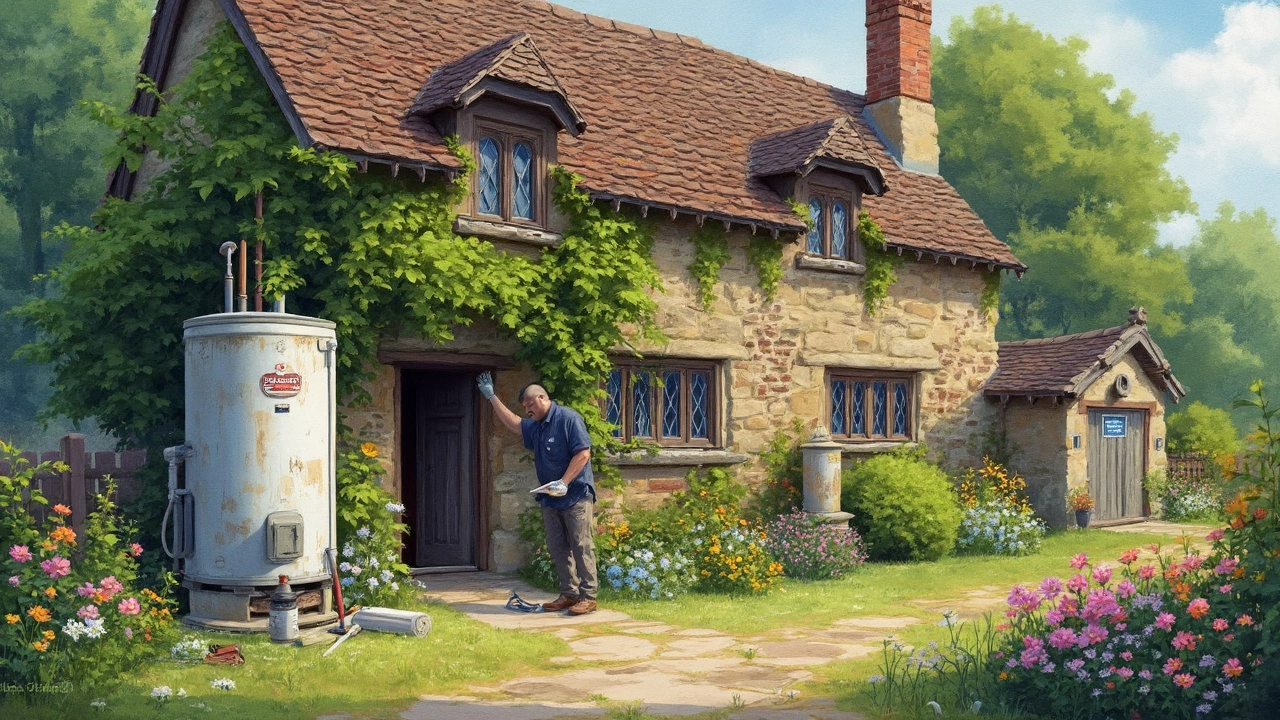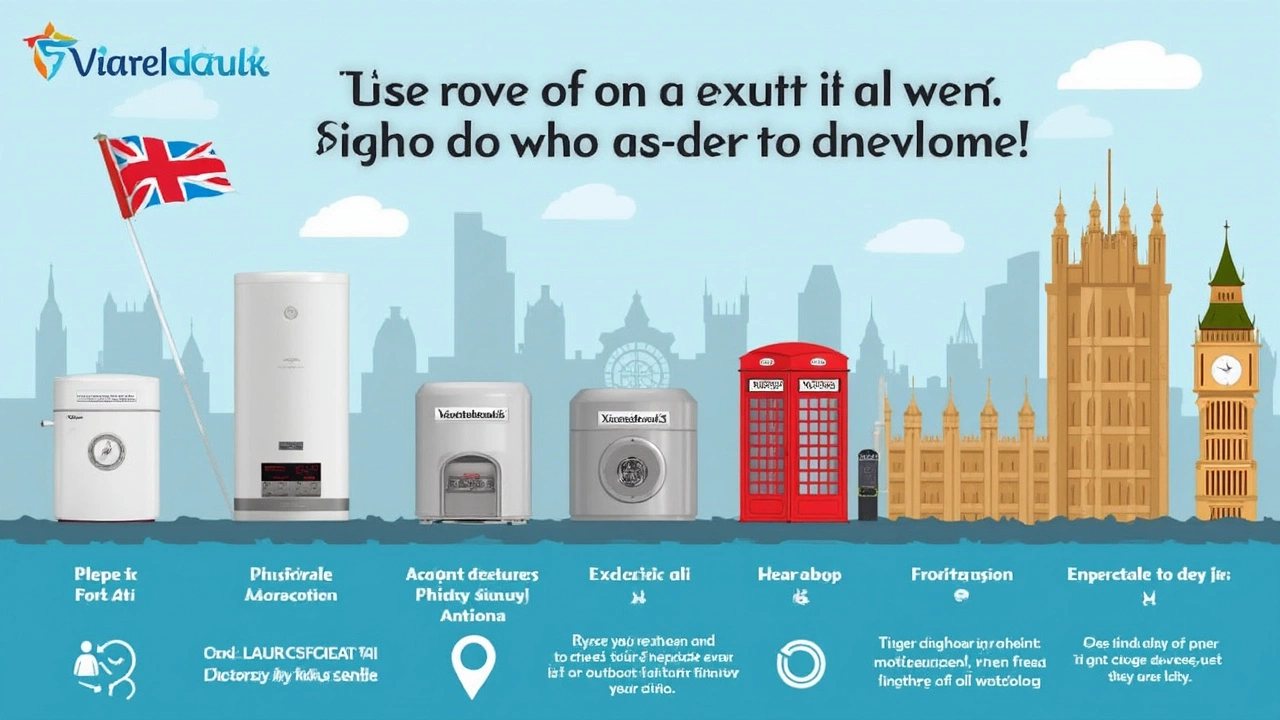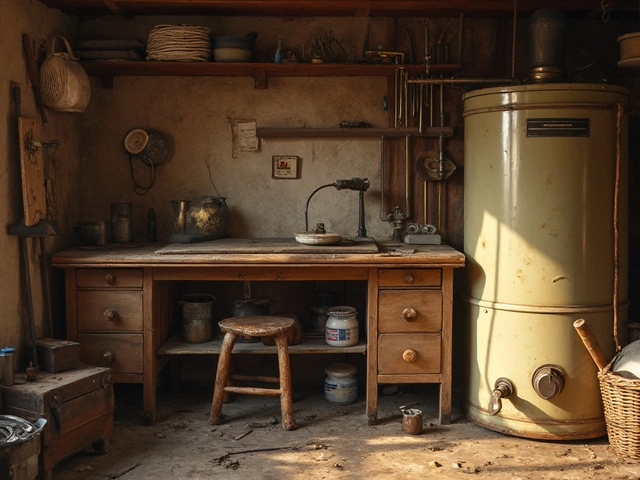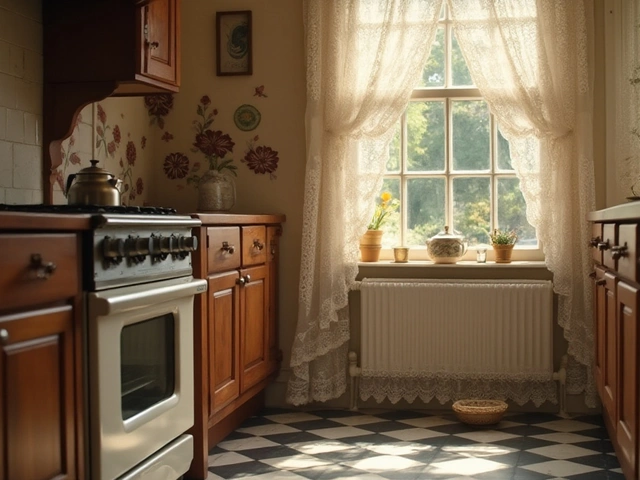Ever wondered how long your water heater will be your trusty hot water source? You're not alone. Most folks start thinking about their water heater only when the morning shower suddenly feels like an ice bucket challenge. But here's the deal: even if everything seems peachy with your current setup, knowing what to expect in terms of lifespan can save you from unexpected cold showers down the road.
Water heaters typically hang around for about 8 to 12 years, but let's not take this for granted. Various factors can shorten or lengthen this period. It's not just about the brand or the model, although that helps. It's also about how you take care of it and the type of water running through your pipes. Have hard water? That could mean trouble sooner rather than later.
- Understanding Water Heater Lifespan
- Factors Influencing Longevity
- Signs Your Water Heater is Failing
- Maintenance Tips for Extending Life
- When to Consider Replacement
Understanding Water Heater Lifespan
Wondering how long your current water heater will keep chugging along is pretty common. Typically, a water heater lifespan is between 8 to 12 years, but there are exceptions to this rule. Think of it like a car—mileage varies depending on how you drive it and how well you maintain it.
Your heater’s age isn’t just a number; it’s influenced by a variety of factors. For example, if you have a traditional tank water heater, regular maintenance like flushing sediment can really add years to its life. On the other hand, modern tankless versions might seem like they last forever, but they require attention too, like descaling.
The type of water running through the system can also affect longevity. If you're dealing with hard water, then its minerals might shorten the heater's effective life by building up a nasty scale inside.
- Electric water heaters generally offer a lifespan of 10 to 15 years.
- Gas water heaters hover around 8 to 12 years.
- Tanked systems usually need more TLC compared to tankless types, which are not affected by standing water issues.
Just like any other appliance, water heaters have a birth certificate, meaning they all come labeled with a manufacturing date that can be decoded via the serial number. So, keep an eye on this to avoid any sudden breakdowns.
Paying attention to these details could mean the difference between enjoying a hot shower or getting a chilling surprise. A clear understanding of your heater's lifespan not only helps in planning but also in budgeting for a future replacement.
Factors Influencing Longevity
So, how long can you count on your water heater sticking around? It depends on a bunch of factors. Some of these are under your control, while others, not so much.
First off, think about the type of water you have. If your home’s water supply is hard, loaded with minerals like calcium and magnesium, you might find yourself replacing your heater sooner. Hard water builds up scale inside the tank, making it work harder and age faster.
Location in your house plays a role too. If your water heater is stashed away in a cold basement or garage, the temperature differences can affect its lifespan over time. The constant cycle of heating more in winter puts extra strain.
Let's not overlook routine upkeep either. Regular maintenance is like the secret sauce for extending your heater's lifespan. Flushing out the tank annually to remove sediment, checking the anode rod, and ensuring no leaks can be the ticket to those extra few years.
The model and brand don’t just affect your cash at purchase. You're looking for a reputable manufacturer with a solid track record in longevity. Cutting corners might save you some bucks initially, but it could backfire if you're replacing the unit sooner than you’d hoped.
| Factor | Impact on Lifespan |
|---|---|
| Water Quality | Hard water reduces lifespan |
| Location | Indoor vs outdoor affects wear |
| Maintenance | Increased longevity with regular care |

Signs Your Water Heater is Failing
Alright, so how can you tell if your water heater is on its last legs? Some hints might be more obvious than you think. Water heater lifespan isn't just a number. It's all about recognizing when your heater is begging for a break.
First up, pay attention to the water temperature. If you've noticed your showers are suddenly lukewarm, even after you've cranked the dial to hot, your water heater might be struggling to keep up. A well-functioning unit should deliver consistent temperature.
Keep an ear out for strange noises. Is knocking or popping becoming the new soundtrack of your home? That’s typically a sign of sediment buildup inside the tank, creating pockets of air that make the water heater rumble. Sediment buildup can seriously cut down on the water heater lifespan.
Watch out for rusty water. Pour yourself a glass from the hot faucet. If it looks rusty or has a brownish hue, corrosion might be taking over the inside of your tank. And remember, rusty water coming from the hot tap means the problem lies with the heater itself, not the pipes.
Also, don’t ignore puddles around your water heater. Leaks don’t usually fix themselves. Even small leaks can escalate into bigger problems, hinting at a more significant internal failure.
Finally, consider the age of your unit. There's a handy chart: if your heater is pushing a decade, it might be time to think about replacement, regardless of its current condition. Here's a quick reference for deciding:
| Water Heater Age | Condition Check |
|---|---|
| Less than 5 years | Regular maintenance; likely solid |
| 6-9 years | Watch for issues; schedule inspections |
| 10+ years | Consider replacement options |
Ignoring these signs could mean waking up to a cold shower or, worse, dealing with water damage. Stay ahead of the curve by remembering these signs. A little attention goes a long way in ensuring that your mornings start with steamy showers and not cold surprises.
Maintenance Tips for Extending Life
So, you want your water heater to last as long as possible, huh? Good call! Regular love and care can stretch its life way beyond the average. Here's what you gotta do to keep your hot water friend in top shape.
First up, flush it out. Sounds fancy, but it's really not. Over time, sediment and gunk from your water build up at the bottom of your heater. This makes it work harder and cuts its life short. Just give it a flush once or twice a year to keep things moving smoothly. It’s like a spa day for your heater!
Another important routine is checking the pressure relief valve. It’s like the safety net when temperatures or pressures get too high. Every six months, lift the valve’s lever to let it release any built-up pressure. If it doesn’t, or if it leaks afterward, it’s time for a replacement.
Here's something folks often overlook: pay attention to the temperature settings. Keeping your heater at about 120 degrees Fahrenheit is a sweet spot. It’s hot enough to keep bacteria at bay but not so hot that it spikes energy bills or burns out your heater.
Don’t forget about the anode rod, either. It’s designed to rust so your heater doesn’t have to. If this rod’s worn out, your water heater might start corroding too. Check it every couple of years and replace it if it’s more than 50% corroded.
Finally, think about where your water heater lives. If it’s hidden away in a dark, damp basement corner, it won’t be too happy. Elevating it off a concrete floor and ensuring ventilation can prevent rust and mold. If it's in a cooler place, consider adding an insulating blanket to reduce heat loss.
Not a DIY fan? No worries! An annual check-up by a pro isn't just for cars—it works wonders for your heater too. They'll spot any issues before they become full-blown problems.
These little steps can make a big difference in boosting your water heater lifespan. So next time you're thinking of skipping maintenance, remember, a bit of effort now can save you from freezing surprises later.

When to Consider Replacement
It's no fun dealing with a water heater that’s on its last legs. So, when is it time to call it quits and get a new one? Here’s how you can tell it's time to start shopping around.
Age of the Water Heater: If your water heater is creeping past the 10-year mark, it might be time to consider replacing it. These appliances generally have a lifespan of 8 to 12 years. After that, they become less reliable.
Rusty Water: If your hot water looks rusty, that’s a red flag. This could mean the inside of the tank is corroding. And let’s be real, nobody wants rusty water.
Noisy Operation: Banging or rumbling sounds? Those noises could mean sediment is building up at the bottom, making your heater less efficient and wearing it out quicker.
Leaks Around the Tank: Water pooling around your tank is more than a wet mess. It could be a sign of a fracture. Small leaks can often be repaired, but big ones might mean the tank is failing.
Inconsistent Water Temperature: If you’ve got hot water one minute and cold the next, your water heater might not be able to keep up, suggesting it's failing few steps away from giving out completely.
Thinking about performance and maintenance, catch these signs early enough, and you might make your water heater's lifespan stretch just a bit longer. But delaying the inevitable replacement when these issues pop up can leave you without hot water at the worst possible time.




